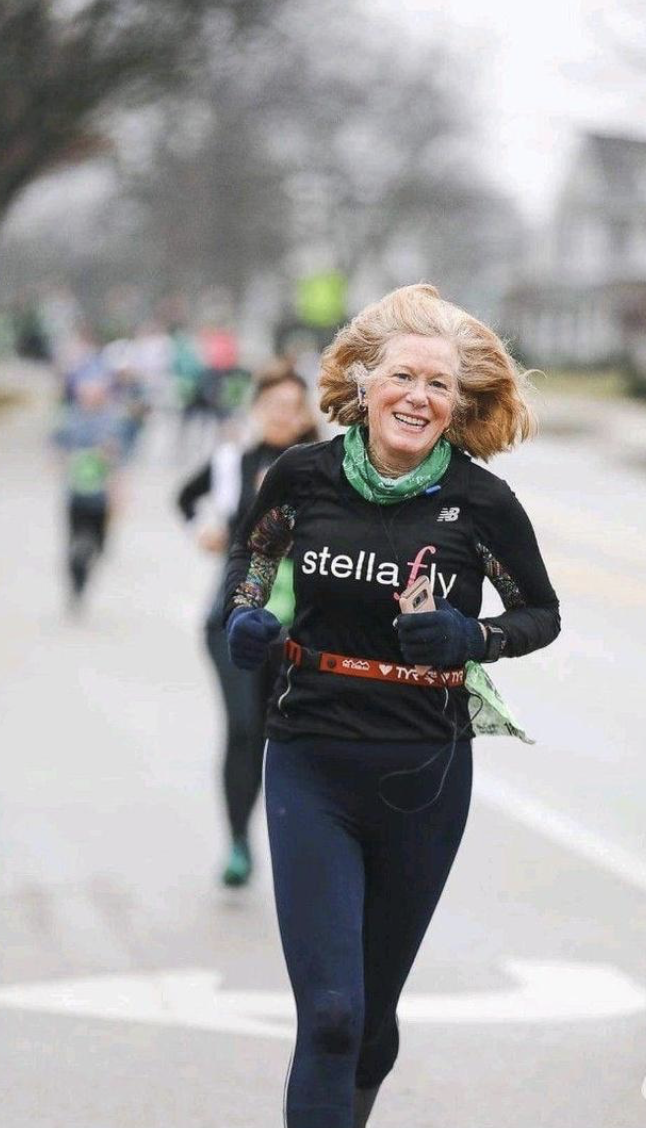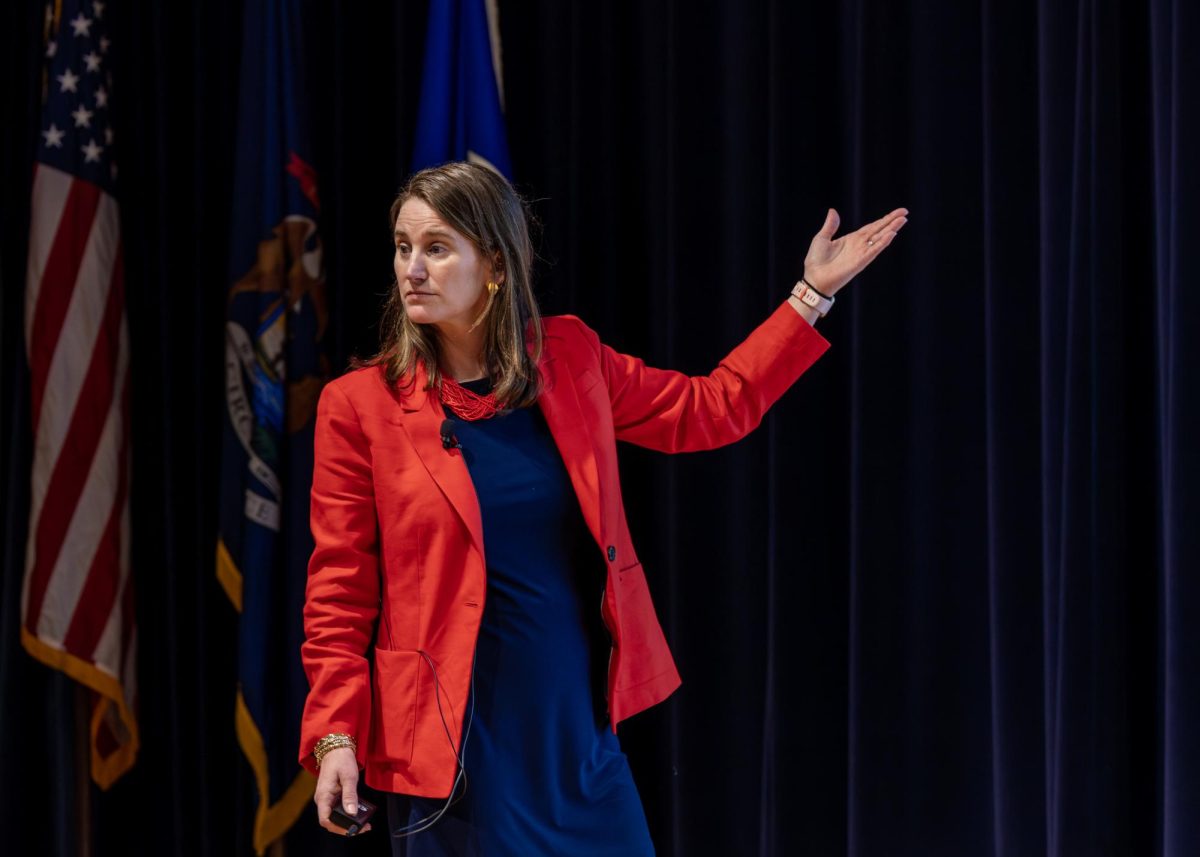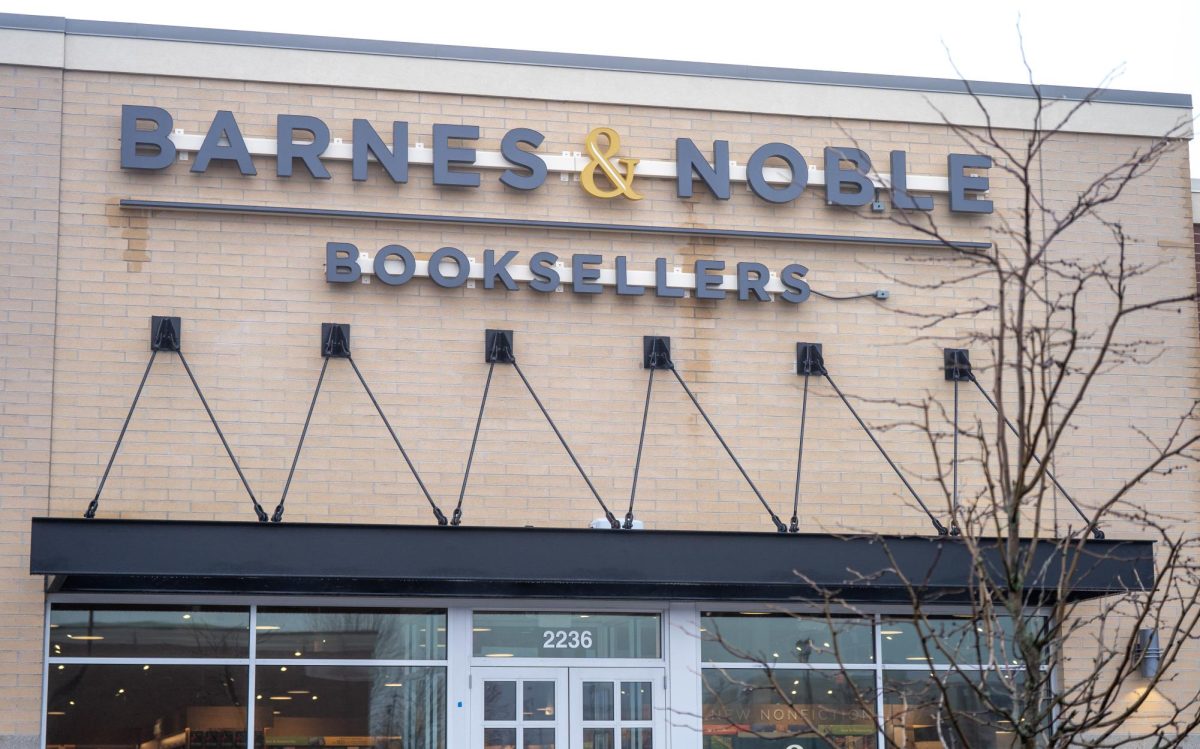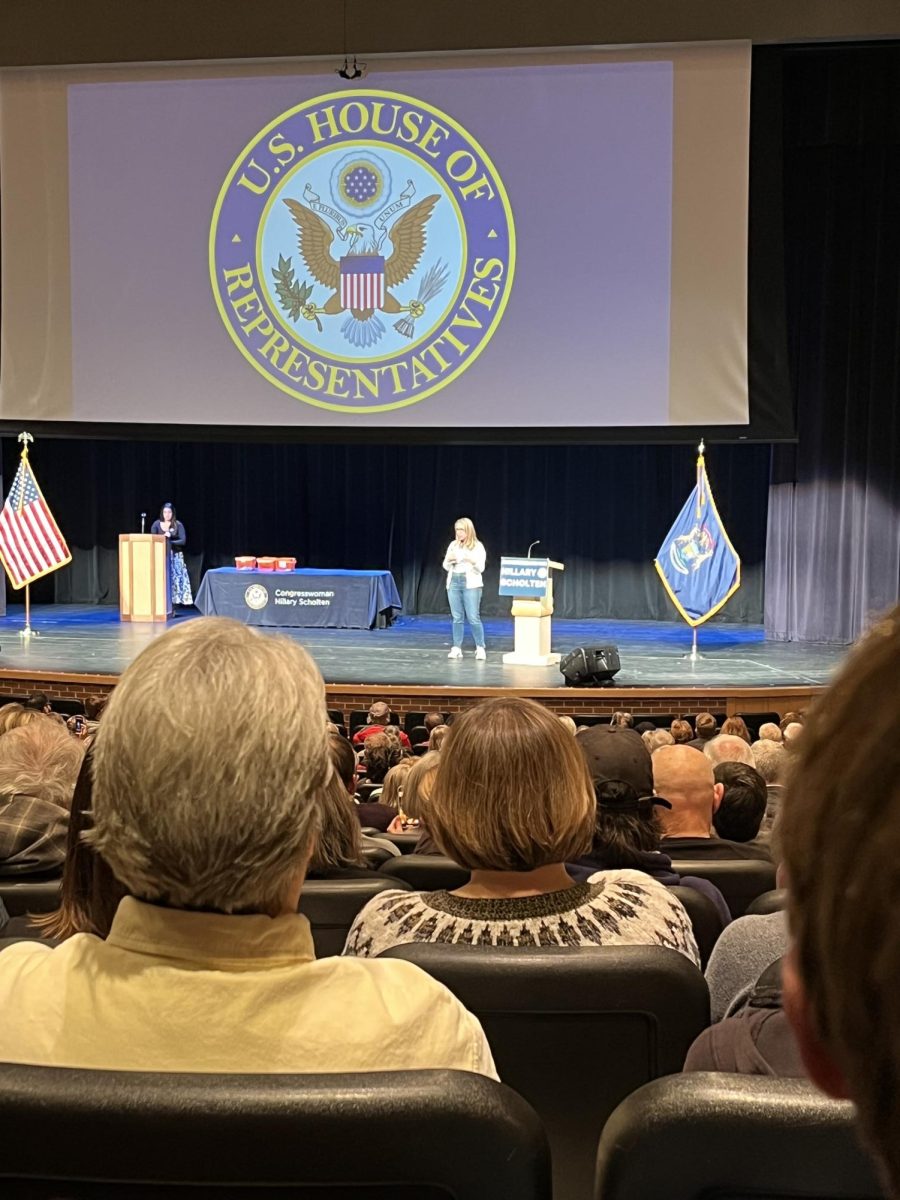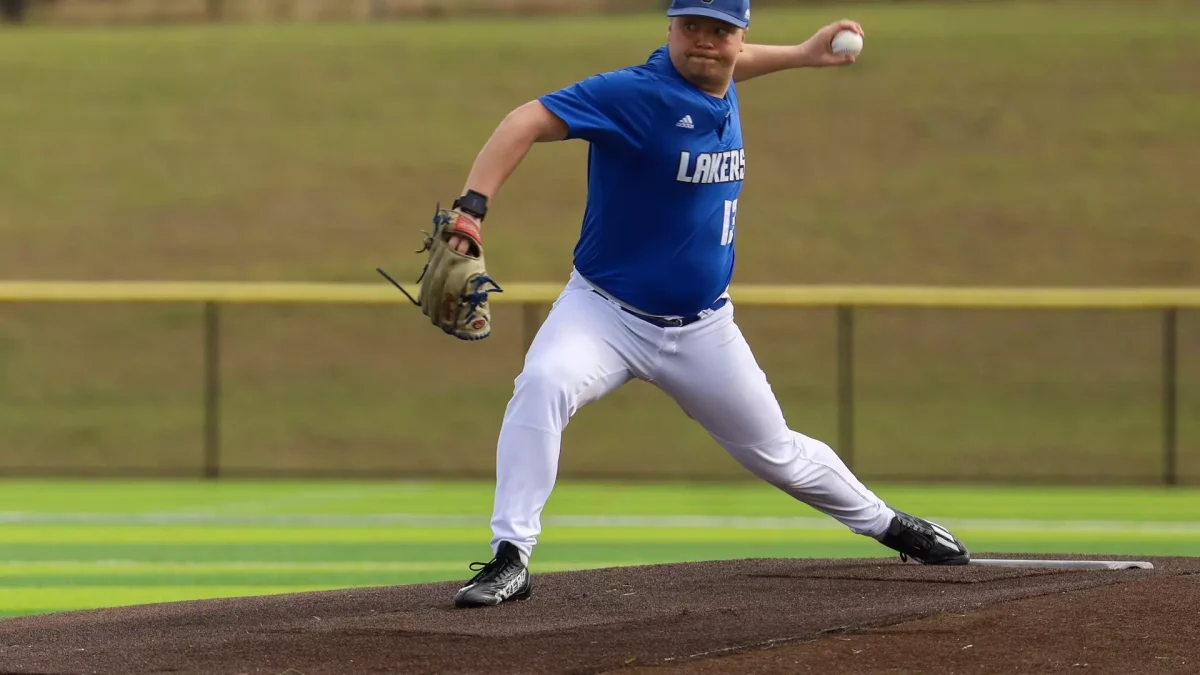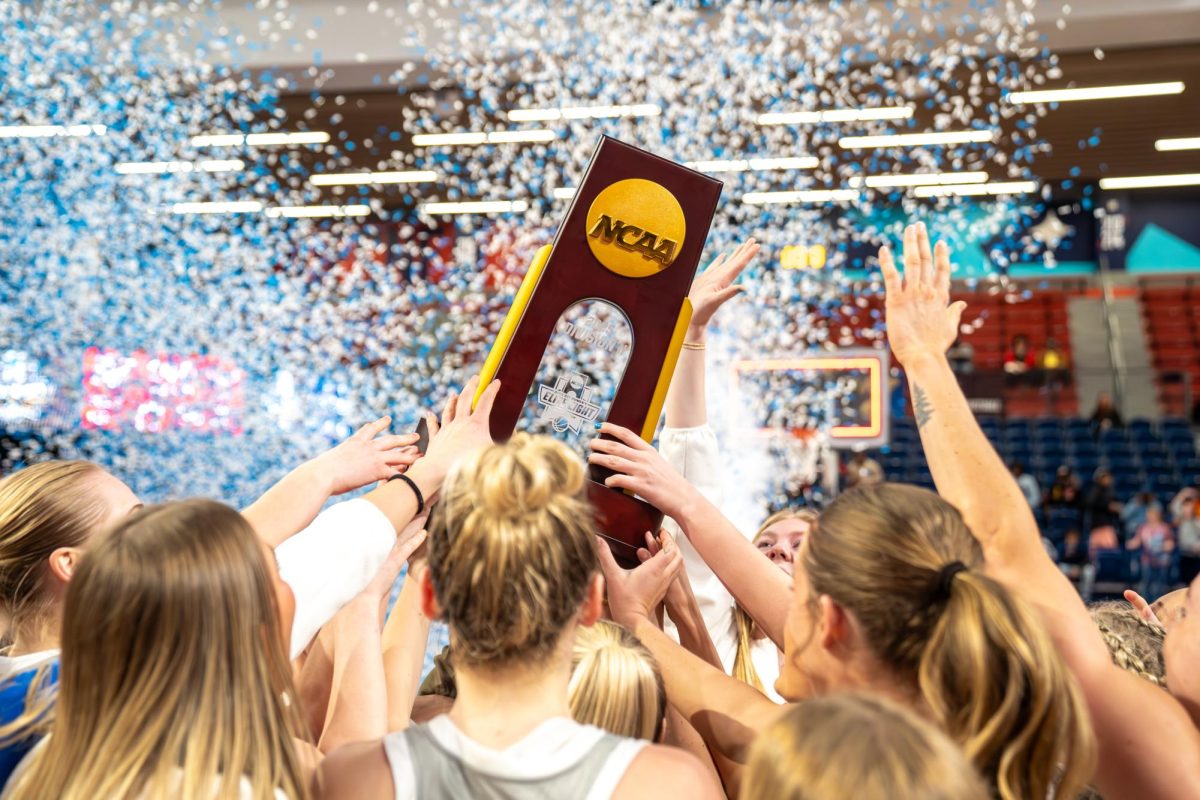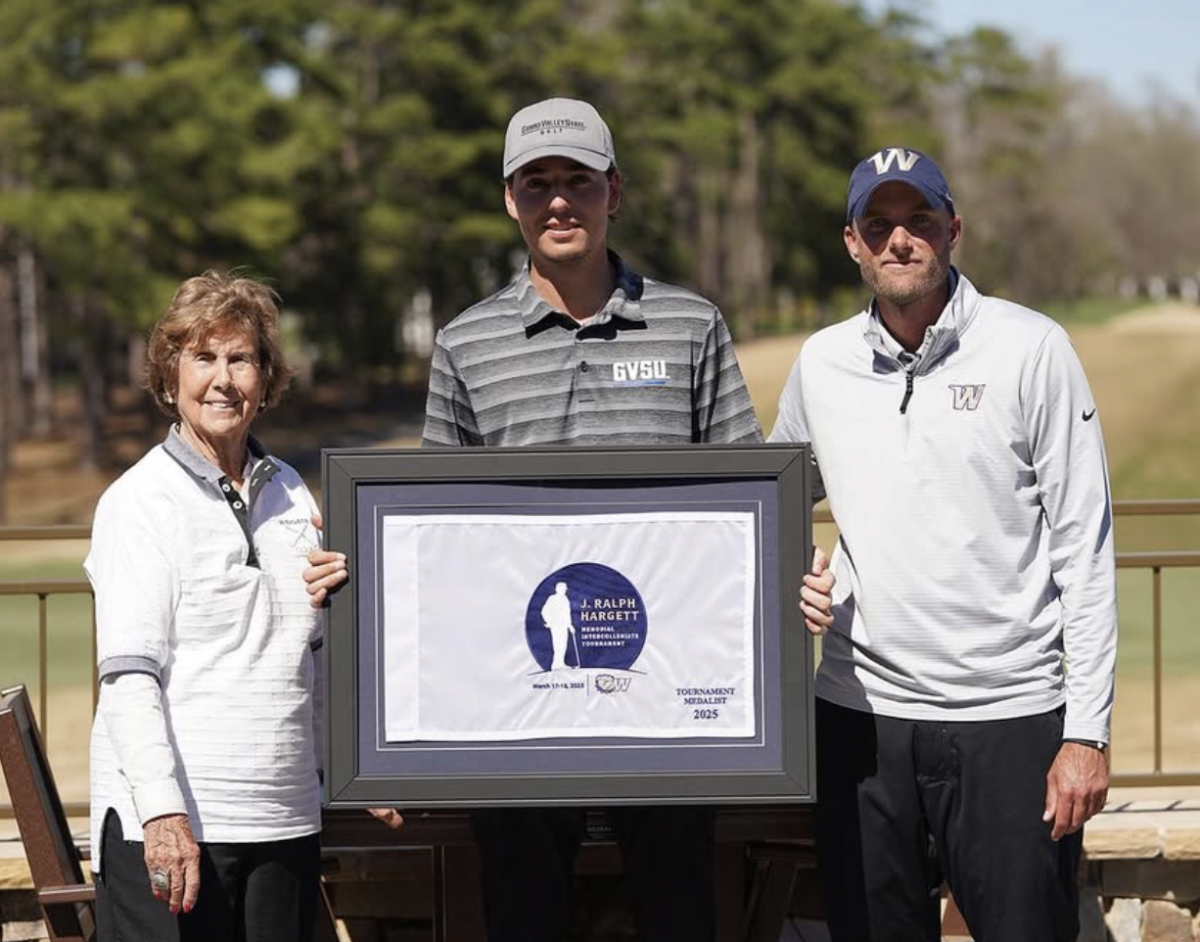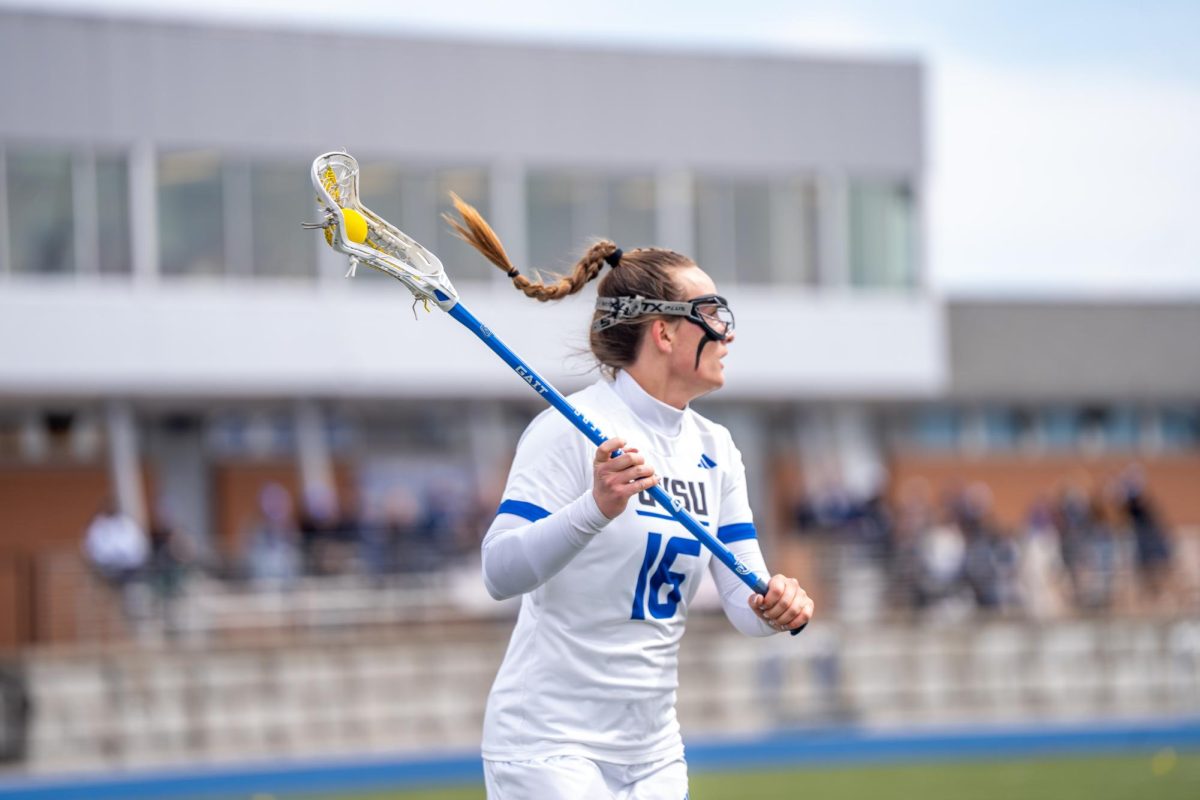It is February of your senior year in college and things are getting real. The practices, workouts and games are nonstop, and you fit everything else in your life around athletics. Now, it’s all about to come to a stop. No more 7 a.m. practices, lifts or shootarounds. No more study tables, meetings with coaches or manager check-ins. It’s time to get a “real job” and leave everything else behind, but where would you even start?
This is the reality for Grand Valley State University senior Tom McNelis. McNelis’ major, supply chain management, is broad, and his next steps are still unclear. He is approaching graduation quickly, and has no idea what will happen after he crosses the stage.
“I’m looking for a job after graduation, but I don’t really have any concrete direction,” explained McNelis. “I don’t know if I can even get a job right now and nobody’s helping me, it’s kind of just all on me.”
According to Associate Athletic Director Keri Becker, GVSU aims to counter the fears that McNelis conveyed. She emphasized the importance of empowering student-athletes for their futures outside of just sports.
“In the end, I want every student-athlete to say their student-athlete experience prepared them for what was next, whatever that may be, and give them the confidence to believe they can do anything they want,” said Becker.
For athletes like McNelis who feel unprepared for a life outside of sports, universities hold the responsibility to bridge the gap, preparing students for both athletic success and future careers. GVSU Athletics has historically been known for its excellence. In the past 19 years, the University has won the Directors’ Cup for Best NCAA Division Two Athletic Program across all sports 16 times. Many student-athletes attend GVSU with the goal of becoming a national champion. However, the departure of Walter Moore, the associate athletic director for Student-Athlete Welfare and Development, has left a noticeable gap in GVSU’s support for student-athlete’s career readiness. Moore retired in August 2024, and with his position remaining vacant, many in the GVSU community are wondering if the University’s commitment to student-athlete excellence extends beyond athletic accomplishments.
Moore created the Office of Student-Athlete Welfare and Development in 2017 to help student-athletes figure out plans for their lives post-graduation. The office was a solo effort, and Moore was proud to connect current student-athletes and recent alums with employers and internships. At the conclusion of the 2023 academic year, he was able to connect student-athletes with representatives from Stryker, Fifth Wheel Freight, HexArmor, Mass Mutual, Athletes to Career, Balfour and other companies.
The Office of Student-Athlete Welfare and Development has been committed to cultivating critical life skills that prepare student-athletes for life after sports. Moore assisted approximately 200 students in his first year at the office. In just the fall of 2023, Moore had 162 individual appointments with student-athletes. He worked with students on resumes and cover letters, and wrote more letters of recommendation than he can count.
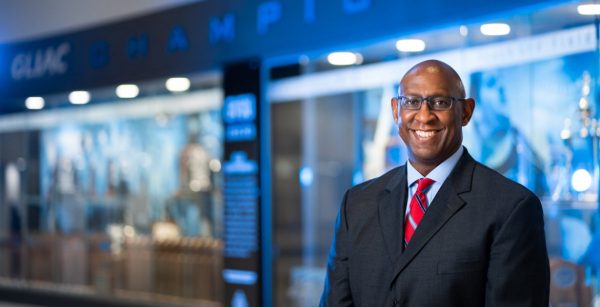
To many, what made the office special was Moore’s presence. Many student-athletes who got the chance to know Moore remember him as the “guy with connections.”
“If a student-athlete was struggling to find what they wanted to do or where to go, the easy answer was, ‘Go talk to Walter Moore,’” said fifth-year graduate student Scott Spanstraa, a past intern for Moore. “More often than not, he could set them on the right path.”
Prior to his departure, Judith Essemiah was one of many students who utilized Moore’s resources. Essemiah is a GVSU alum who currently holds the position of a research assistant at the Massachusetts Institute of Technology’s (MIT) Department of Neuroscience. While she was searching for research internships, Moore introduced Essemiah to networking with GVSU alums.
“Without that research experience, I would not have been able to get this job at MIT,” Essemiah explained. “He has been instrumental in my development as a person, an athlete (and) a working professional.”
There are several other Division II universities across the country that offer extra support for student-athletes. Lee University in Tennessee offers a director of student-athlete welfare and athletic counseling, and focuses on both the mental health and overall well-being of athletes. Purdue University Northwest employs an assistant director for student success, and emphasizes academic performance and career readiness for athletes. The University of Mount Olive also features a director of student-athlete development to prepare athletes for life beyond sports through academic and professional support.
Mount Olive’s director, Thomas Capers Jr., was an intern under Moore in 2019. Capers Jr. is further confirmation that Moore’s work has carried on with students in their own professional endeavors. Without individuals like Moore and Capers Jr., things can go drastically wrong for both student-athletes and universities.
Across the country, there have been instances where student-athletes have sued institutions for not providing them with the education they were promised. In 2013, Michael McAdoo filed a class action lawsuit against the University of North Carolina, alleging that he was deprived of a legitimate education while being a collegiate football player. UNC allegedly systematically funneled its football student-athletes into a curriculum of fake classes designed for the sole purpose of providing students with high grades. In turn, UNC maximized the number of student-athletes who were eligible to play, which improved the chances of athletic success and increased the revenue and reputation of the university.
Considering the office’s gravity, Moore feels his role was not always apparent to other administrators. As a result, he was often pulled into other areas of the Athletics Department. Instead of being able to expand his role, he was asked to help with other tasks, such as Name, Image, Likeness (NIL). Moore’s frustrations also lay in the fact that he was responsible for all of the office’s responsibilities. In his final months of employment, he found himself working late hours, which from his perspective, were not appreciated by Becker.
“It seemed like not a lot of people knew the extent of what he (Moore) did because he was on his own,” Spanstraa explained. “I would say (he didn’t receive) a ton of support from other administrators.”
According to a Freedom of Information Act (FOIA) request, Becker applauded Moore’s efforts as a professional in multiple evaluations. Despite the positive feedback, Moore felt his program was not prioritized, and certainly wasn’t given the financial bandwidth that he felt it deserved.
“One of the things that didn’t really sit well with me was, here’s a job that could grow exponentially, and I saw the potential for growth, but I was never really allowed to, or had the opportunity to move in that direction,” Moore said.
Becker stated that she was unsure exactly where Moore was coming from in terms of being prohibited from doing all that he desired. However, she noted that supporting Moore with more staff members wasn’t one of her priorities. However, Becker mentioned that GVSU Athletics considered creating internship opportunities or graduate assistant positions for the Office of Student-Athlete Welfare and Development.
“Were we going to hire another person under Walter? No,” Becker stated. “My priorities were hiring in some other areas. We (GVSU Athletics) can’t do it all at once.”
Becker emphasized the importance of hiring athletic training staff, employees for on-campus game operations and staff for the new women’s wrestling program instead. After receiving a grant in 2023, Becker hired Derrick King, who served as the University’s director of athletic inclusion. Months later, King disclosed that he was leaving in fall 2024 for a higher-paying opportunity to be a resource for students at Muskegon Community College.
Moore explained that upon his departure, his many responsibilities were not directly passed to one individual. While many of Moore’s tasks have been dispersed among staff members since his retirement, Spanstraa feels one of his responsibilities that has “died off” has been connecting student-athletes with jobs and internships.
“It wasn’t determined what was going to happen with my job, and I’ve since heard that they’re not going to do anything,” said Moore. “It’s (the role’s responsibilities) going to just (be) dissolved among (other staff).”
Becker made it clear that she’s aware of the impact Moore had on student-athletes, but feels there is no way to “duplicate” him. She explained there is currently a group of administrators doing an evaluation analysis of how to support student-athletes at the University. The next step would be tailoring a position to fulfill those needs, which could expand or subtract from Moore’s previous duties. As a result, an “associate athletic director of the Office of Student-Athlete Welfare and Development” may never exist again. GVSU Athletics is also looking to fill responsibilities associated with King’s vacant role.
“We’re not going to find another Walter, but yes, we’re going to fill that role,” Becker stated. “We have a committee of people that are looking at both of the positions to figure out what the gaps are, and how we can use these two roles.”
Becker plans to fill both roles by the spring, which raises concerns about the support graduating seniors will receive in the coming months. However, she stated that for the time being, there are other on-campus resources for student-athletes.
“We have the Career Center (and) academic advising,” Becker stated. “A lot of what Walter was doing was happening through academic advisors. Walter was just where they’re (academic advisors) missing a more one-on-one and hands-on (approach).”
The Laker Academic Success Center provides advising and academic support for over 600 student-athletes on campus. Myesha Gholston, the center’s director, explained that athletes can stop into the center if something isn’t going well in a class or with a professor.
“(We) make sure athletes have the resources they need to thrive in their academic career, and make sure they get over the finish line (graduation),” said Gholston.
Regardless, to many student-athletes, the center has not been the same as Moore’s office.
Gholston, while recommending the Laker Academic Success Center and the Career Center, emphasized that seniors will need to be more proactive in terms of planning out their futures. She also noted that seniors will need to “go to their resources.”
However, McNelis explained that in his time at GVSU, he hasn’t had time in his busy schedule to seek out such resources.
“I know I could have gone to the Career Center, but it’s hard,” McNelis said. “It’s hard to find the time outside of athletics and academics.”
Moore heralds the importance of supporting student-athletes, and has been persistent about wanting to grow the office’s mission. From Moore’s understanding, GVSU began to go in a different direction that he was not comfortable with. He admitted that while he misses the University’s student-athletes, it was time to move on. As GVSU evaluates how to reshape the Office of Student-Athlete Welfare and Development, the question remains whether it will ever compare to Moore’s creation.
“It’s a serious void,” Gholston said. “I think that as an Athletic Department, we should be very strategic in who we place in that role because it needs to be a person that can develop student-athletes where they are, and also develop the community and alums to work with our students.”







